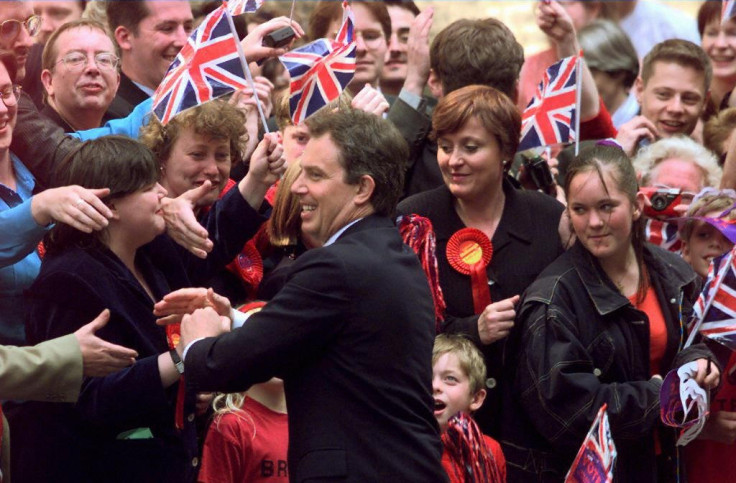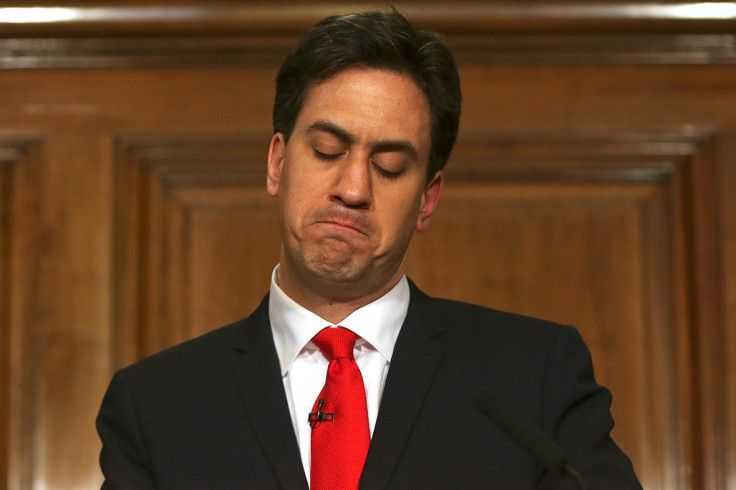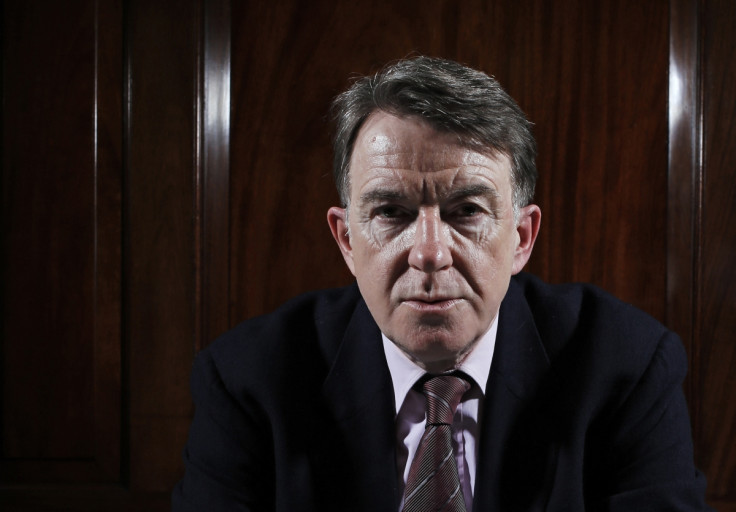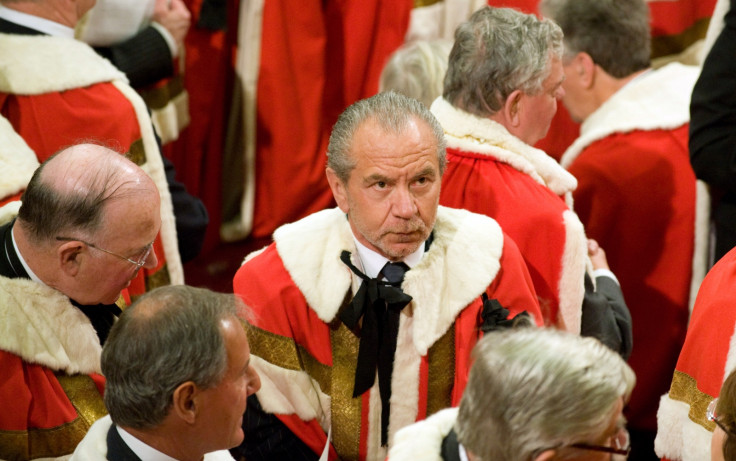Labour: After Ed Miliband and Gordon Brown, should the party embrace Tony Blair's Third Way again?

There is only one Labour leader since 10 October, 1974, who has won a general election. In fact, he won three. It was Tony Blair.
So when Blair speaks about how Labour can win an election, the party should listen, now more than ever. The "route to the summit," wrote Blair in the Guardian, "is through the centre ground". Ed Miliband, who just delivered a disastrous election defeat for Labour, steered the party left and fell off a cliff.
As the party searches for a new leader following Miliband's resignation, it must also search for its soul. What is it about? Who is it pitching to? Why should voters believe in Labour?
Blair may be toxic after Iraq and Afghanistan, and his post-office consultancy work for dictators and autocrats, but Blairism is largely unsullied. Labour's answer may lay within its Third Way centrism. When Blair won the Labour party leadership in 1994, after the sudden death of John Smith, he wasted no time in doing away with the dogma of its old-school socialism.
He instilled -- temporarily at least -- financial prudence. He opened his arms to the City of London and big business, embracing the earning power of the corporate world as a means of growing Treasury revenues that could then be invested in public services and supporting those on low incomes. He took on public sector reforms that unleashed market forces, more often than not to the benefit of service users.
By attempting to marry the best of capitalism with the best of the state, Blair made the broadest appeal possible to the mass of middle class voters: Labour was a party that encouraged the creation of wealth so that it could be used for social good. A Britain where everyone would be better off. Labour was not left or right, it was about aspiration and social justice.

In fairness to Miliband, he faced challenges that Blair did not -- first among them the financial crisis. When the Tory-led coalition government took office in 2010, it had inherited a deficit in public finances equivalent to 11% of GDP. It was a huge hole, ripped open by a collapse in Treasury tax revenues thanks to the crisis and a massive recession.
The Conservatives hammered Labour on claims that it had overspent and irresponsibly ran a deficit in the good years. Labour, wounded by the electoral defeat in 2010, did not do enough to counter this argument early on in the parliament, especially given that the Conservatives had backed Labour's spending levels before the crisis -- so were hardly on solid ground to criticise.
But the message stuck and Labour was branded a party without economic credibility, one of fiscal recklessness. Moreover, it had become tainted by Iraq in particular, as well as the dying days of the Blair administration which saw infighting between Blairites and Brownites. The Labour brand was damaged, so Miliband wanted to break free of the Blair and Brown years by distancing himself from them.
This self-flagellation has had consequences. The party allowed itself to be painted into a corner by by both the left and right. Rather than take the fight to its critics in a robust defence of the Blair years, during which the UK experienced unprecedented prosperity, it went along with much of the criticism and allowed it to stick.
On top of this, Miliband faced the forces of Scottish nationalism, which grew stronger after the independence referendum in 2014, and Ukip, whose populist anti-immigration stance dragged away former Labour voters across northern towns and cities, even helping the Conservatives to scalp shadow chancellor Ed Balls in Morley & Outwood. But while these were new challenges for Miliband and Labour, ultimately they still failed to overcome them in their campaign.

Miliband's case at the election was, despite some rumblings about the chance for a better future, broadly pessimistic. He said the low paid and the poor were being made worse off under the Conservatives, that they were suffering and the economic recovery was not filtering down to them. He also attacked big business, describing much of it as "predatory". He wanted to introduce new wealth taxes, raise corporation tax again for the biggest firms, and fix energy prices. It felt, at time, like and endless critique of what is bad than a vision of what is good.
As Blair put it: "We have to conduct the big argument on the wealth-creating potential of the macro-economy, not only the targeted campaign on the injustices of it."
"In the past year I found myself losing confidence in the party due to their negative business policies and the general anti-enterprise concepts they were considering if they were to be elected," said the high-profile businessman Lord Sugar as he quit the Labour party after the election.
"I expressed this to the most senior figures in the party several times. I was originally brought into the party by Gordon Brown during an era where true enterprise was being supported by the party. I signed on to New Labour in 1997 but more recently, particularly in relation to business, I sensed a policy shift moving back towards what Old Labour stood for. By the start of this year, I had made my decision to resign from the party whatever the outcome of the general election."

There are, of course, caveats, as identified by the University of Manchester elections expert Dr Robert Ford. Labour lost votes in all directions. On the left, to the Greens and SNP. On the right, to Ukip and the Conservatives. Reconciling the different priorities of these voters might be impossible.
"The way forward for Labour is not clear, as the different groups that shunned the party in 2015 make contradictory demands for change," Ford wrote in the Guardian.
"Those wanting to win back middle England will want to emphasise economic competence and rewarding aspiration, while Scottish Labour will want to reclaim Labour's mantle as the party of the NHS, public services and redistribution.
"The 'blue Labour' thinkers who have long recognised the threat Ukip posits to white working-class support will want a more socially conservative stance, particularly on immigration and Europe, but adopting such a position could put at risk the gains Labour have made with its 'London core'."
And not everyone is convinced that the centrist sweet spot identified by Blairism is relevant to the Labour party in 2015. Ian Dunt, writing on Politics.co.uk, calls Blairism "uniquely unsuited to the problems the Labour party now faces".

"This election was not won by the Conservatives as a battle of ideas. It was lost by Labour because of a fragmentation of its vote," he said.
"Labour voters migrated to the SNP and Ukip. Blairism was based on the assumption that Labour had a monopoly hold on its voters. This allowed him to encroach far into enemy territory – triangulation, they called it – attacking the Tories from the right on law and order or welfare and playing merry hell with them.
"They could do this, much to the dismay of their core supporters, because they had nowhere to go. New Labour had many messages for the middle class, but it only ever had one for the working class: Vote Labour or get the Tories."
However you look at it, the central fact is the same: Blair delivered for Labour in terms of electoral success. He dragged the party into modernity via a crucial process of ideological reform that positioned it as both a party of aspiration and fairness, of wealth creation and social justice. It captured perfectly the centre ground with its pitch to middle Britain. It was rewarded.
Labour faces new and different challenges to Blair. But the broadest appeal still lay in the reasonable centre-ground of politics -- and it will be rewarded if it sits there once again.
© Copyright IBTimes 2024. All rights reserved.






